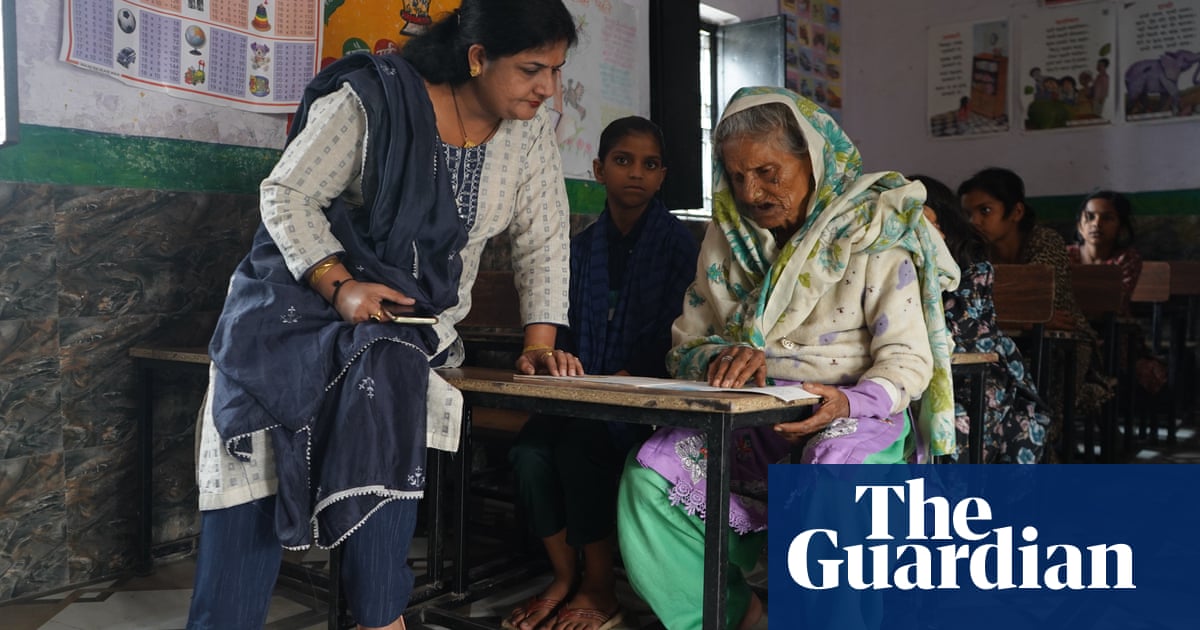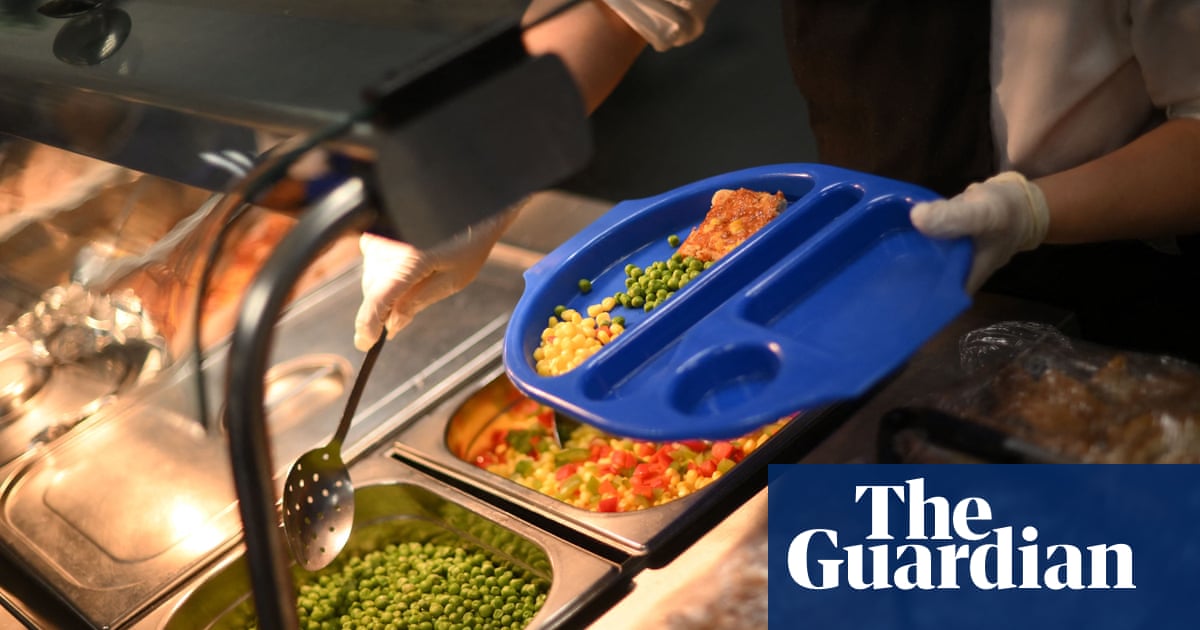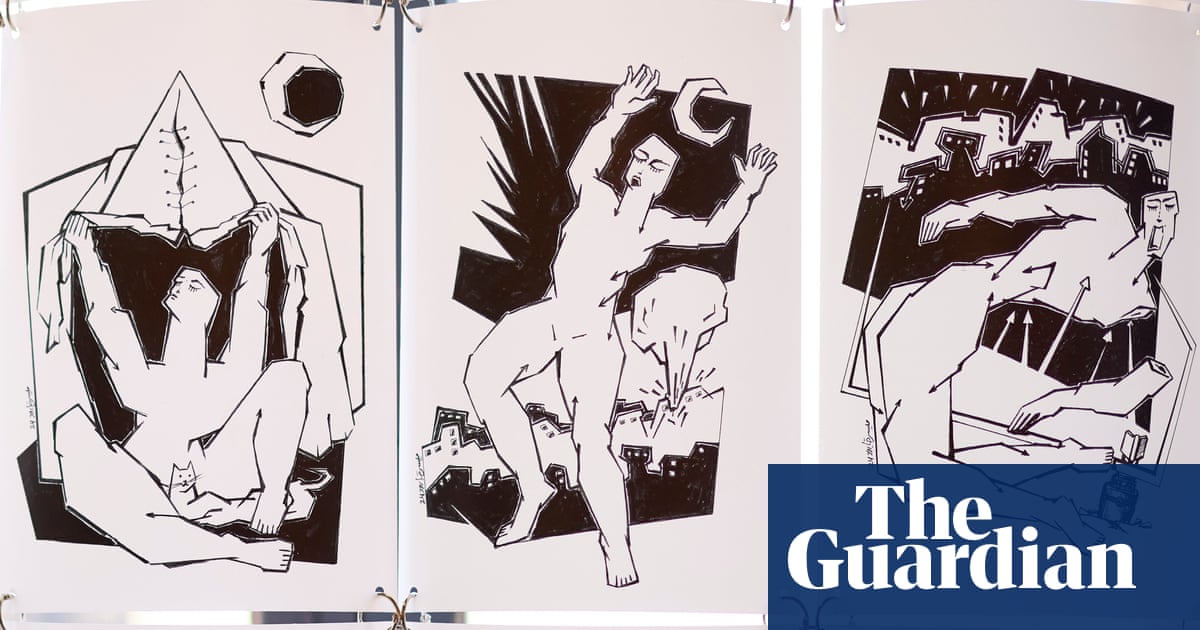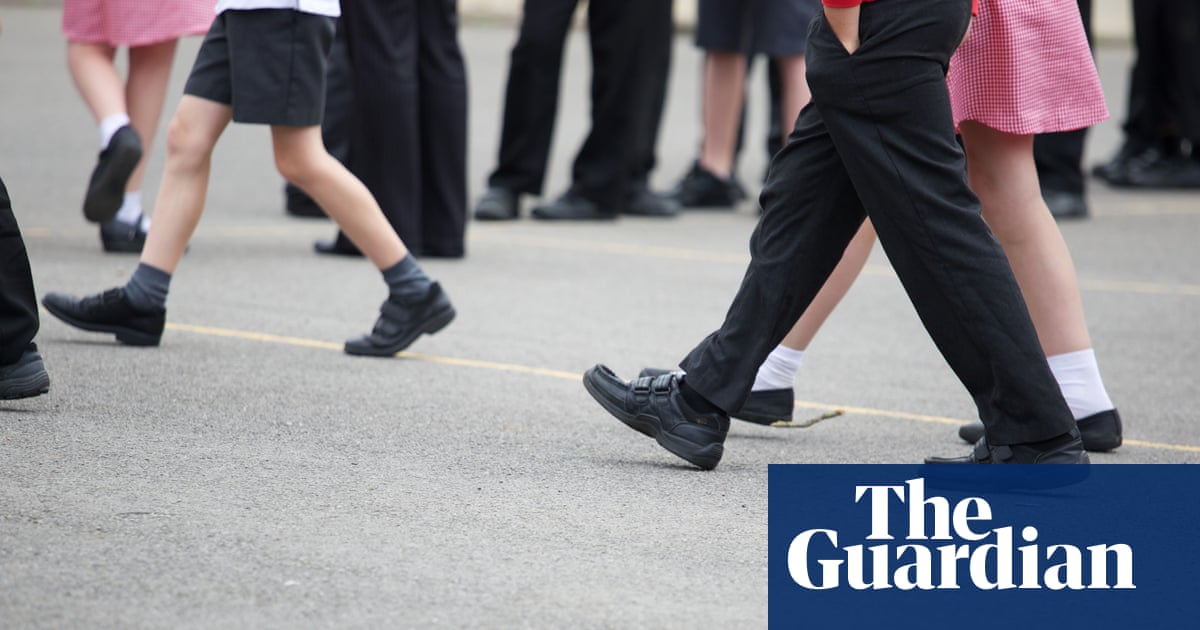
The age range at Chawli primary school in Bulandshahr, northern India, has been wider than at other schools since the 92-year-old Salima Khan enrolled. The great-grandmother – who is known as Amma – struggles to walk far these days but for the past two years she has turned up as often as she can to the school in Uttar Pradesh, alongside her great-granddaughter-in-law, Firdaus, 35, and has learned to read and write.
Her enthusiasm for learning has motivated many young girls as well as married women in the area to enrol in school, including two of her daughter-in-laws. As her story has spread across social media, Amma has become a source of inspiration for women across the wider region of Uttar Pradesh, where about 30% of women are illiterate.
“I have been going to school for the last two years. I have studied for the most part,” says Amma, grinning as she says she was first attracted to the school by the free lunches that were supplied.
As a child, Amma had no chance of education and was married by the age of 14, two years before India gained independence from British colonial rule in 1947. With limited opportunities, she worked as a subsistence farmer while raising four sons and a daughter.
“There were not many schools in those times,” she says. Her own children received very little education, but as she watched her grandchildren go to school, Amma found herself drawn to learn with them.
“The teacher taught me everything,” says Amma. “Now they are saying that they will come to test me in my exams. I went to the school because I like to study and I studied a lot under the guidance of the headteacher. She has taught me a lot of things. I can do the counting and read too.”
Her writing is restricted because she has cataracts, says her grandson, Navinoor Khan.
“Over time, she has also faced challenges with her hearing and vision, but that hasn’t stopped her from pursuing education,” says Khan, a construction worker who takes his grandmother and his 11-year-old daughter, Afreen, to school each morning.
Khan is proud of his grandmother’s impact on the community. “Many girls have been going to school since Amma started attending. There are also about 20 women who go to school sometimes with her.”
Pratibha Sharma, the headteacher at Chawli primary school, says she believes Amma’s example can help improve adult literacy rates in the region. It was Sharma who encouraged Amma to enrol after she started coming to school for lunch.
“A free midday meal is cooked in the school and since the economic condition of Amma is not good, she used to come to the school to ask what was being prepared. That turned into a catalyst for Amma’s education,” Sharma says.
“She cannot tell you the alphabet, but she can learn things orally. Her oral learning is good,” says Sharma. “This recognition of different learning abilities emphasises the inclusivity and flexibility required in education in our country, which we sometimes find lacking.”
Amma has now taken the national literacy exam and – if she passes – she will gain a certificate that that will place her among India’s growing literate population.
“We hope she qualifies,” says Sharma. “People in the village have hopes that she will continue to inspire all of us to tread the path of learning, come what may.”












